ERIC CLAPTON «Discography» (60 × CD · First Press + 24KT Gold CD · 1966-2024)
Performer: ERIC CLAPTON / エリック・クラプトン Album / collection: «Discography / ディスコグラフィー» +++ Label: (c)(p) 1966-2024 Duck ⁄ Reprise ⁄ MFSL ⁄ Audio Fidelity ⁄ WEA International Inc. Source: Rip by KoGGaN™ scans by inet… Official DR value: •10•10•11•10•12•11•11•11•11/11•15•13/9•13•13• •13•12•14•14•14•14•13/12•13•15•13•14•12/12•14•13•14•13•14•11• •13•10•12•8•8/12•12•13•7•7•7•7•11•9•8•8/8/8•8/8/8•11•8•11•10• Catalog (Barcode): much… Genre / Style: Rock, Classic Rock, Blues Rock, Southern Rock, Acoustic

ERIC CLAPTON «Discography» (60 × CD · First Press + 24KT Gold CD · 1966-2024)
Performer: ERIC CLAPTON / エリック・クラプトン Album / collection: «Discography / ディスコグラフィー» +++ Label: (c)(p) 1966-2024 Duck ⁄ Reprise ⁄ MFSL ⁄ Audio Fidelity ⁄ WEA International Inc. Source: Rip by KoGGaN™ scans by inet… Official DR value: •10•10•11•10•12•11•11•11•11/11•15•13/9•13•13• •13•12•14•14•14•14•13/12•13•15•13•14•12/12•14•13•14•13•14•11• •13•10•12•8•8/12•12•13•7•7•7•7•11•9•8•8/8/8•8/8/8•11•8•11•10• Catalog (Barcode): much… Genre / Style: Rock, Classic Rock, Blues Rock, Southern Rock, Acoustic
14 09, 2025
Arjen Anthony Lucassen - Songs No One Will Hear (No Narration) 2025
Исполнитель: Arjen Anthony Lucassen Альбом: Songs No One Will Hear (No Narration) Жанр: Progressive Rock Год: 2025 Страна: Netherlands (Hilversum, North Holland) Лейбл: InsideOutMusic Формат: FLAC (tracks) Official DR value: DR8 Разрядность: 24bit / 48kHz Stereo Размер: 570 MB Инфо: progarchives Залито на: XFile (3% восстановление) «Exclusive for Lossless-Galaxy»

Arjen Anthony Lucassen - Songs No One Will Hear (No Narration) 2025
Исполнитель: Arjen Anthony Lucassen Альбом: Songs No One Will Hear (No Narration) Жанр: Progressive Rock Год: 2025 Страна: Netherlands (Hilversum, North Holland) Лейбл: InsideOutMusic Формат: FLAC (tracks) Official DR value: DR8 Разрядность: 24bit / 48kHz Stereo Размер: 570 MB Инфо: progarchives Залито на: XFile (3% восстановление) «Exclusive for Lossless-Galaxy»
13 09, 2025
Der Weg einer Freiheit - Innern 2025
Исполнитель: Der Weg einer Freiheit Альбом: Innern Жанр: Black Metal Год: 2025 Страна: Germany (Würzburg, Bavaria) Лейбл: Season of Mist Формат: FLAC (tracks) Official DR value: DR8 Разрядность: 24bit / 48kHz Stereo Размер: 526 MB Инфо: bandcamp Залито на: XFile (3% восстановление) «Exclusive for Lossless-Galaxy» Since forming in 2009, DER WEG EINER FREIHEIT has carved out a singular place in modern black metal, blending relentless intensity with a philosophical core. Rooted in the genre’s
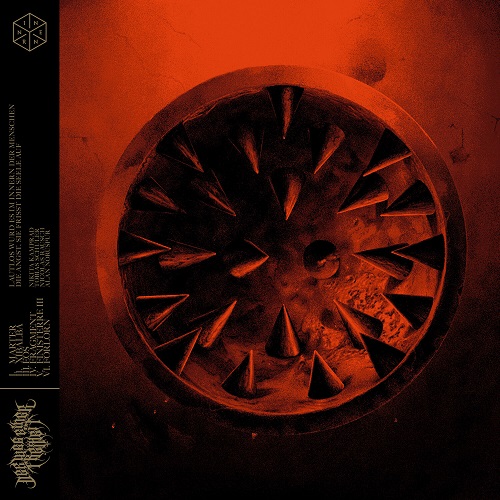
Der Weg einer Freiheit - Innern 2025
Исполнитель: Der Weg einer Freiheit Альбом: Innern Жанр: Black Metal Год: 2025 Страна: Germany (Würzburg, Bavaria) Лейбл: Season of Mist Формат: FLAC (tracks) Official DR value: DR8 Разрядность: 24bit / 48kHz Stereo Размер: 526 MB Инфо: bandcamp Залито на: XFile (3% восстановление) «Exclusive for Lossless-Galaxy» Since forming in 2009, DER WEG EINER FREIHEIT has carved out a singular place in modern black metal, blending relentless intensity with a philosophical core. Rooted in the genre’s
13 09, 2025
Жанры
Lossless Galaxy Release
Русская музыка
--Поп
--Рок
--Панк
--Альтернатива
--Металл
--Рэп, Хип-Хоп, R'n'B
--Джаз и Блюз
--Фолк
--Шансон, Авторская песня
--СССР
Зарубежная музыка
--Pop
--Rock
--Hard Rock
--Progressive & Art-Rock
--Pop-Rock & Soft Rock
--Instrumental Rock
--Heavy, Traditional, Industrial Metal
--Power, Gothic, Sympho Metal
--Thrash, Speed, Groove, Modern Metal
--Death, Melodic Death, Doom, Dark Metal
--Black, Pagan, Folk, Viking Metal
--Alternative
--Punk
--Disco, Eurodance
--Rap, Hip Hop, R'n'B
--Reggae, Ska, Dub
--Jazz, Blues, Soul
--Folk, Country, Ethnic
--Electronic, Ambient, New Wave
--House, Techno, Trance
Другие жанры
--New Age, Relax, Meditative & Flamenco
--Chillout, Lounge, Downtempo, Trip-Hop
--Drum & Bass, Jungle, Breakbeat, IDM
--Classical / Классическая музыка
--Soundtrack
--Музыкальные сказки
Vinyl Rip
HI-Res / DVD-Audio / DTS
--SACD
--DSD
--DVD-Audio
Сборники Lossless-Galaxy
Альбомы 2022
Альбомы 2023
Альбомы 2024
Теги
1st Press 2022 2023 2024 2025 70... AOR Black Metal Blues Blues Rock Bootleg Series Classic Rock Death Metal Discography Exclusive for Lossless-Galaxy Folk Rock Fusion Hard Rock Heavy Metal Hi-Res Japanese Edition Jazz Jazz Rock lossless Melodic Death Metal Melodic Rock Modern Electric Blues Pop Pop Rock Power Metal Prog Rock Progressive Metal Progressive Rock Psych Rock Psychedelic Rock Rock SACD Symphonic Metal Thrash Metal Дискографии от KoGGaN
Архивы
Опрос
В каком формате хотели бы видеть релизы на сайте ?
 Автор: Forvarder, 19 декабря 2010, Комментариев: 6, Просмотров: 2 590
Автор: Forvarder, 19 декабря 2010, Комментариев: 6, Просмотров: 2 590Кучин Иван - Царь-Батюшка (2001)
Lossless Galaxy Release
Кучин Иван - Царь-Батюшка (2001)
Кучин Иван - Царь-Батюшка (2001)
Исполнитель: Кучин Иван
Альбом: Царь-Батюшка
Жанр: Шансон
Год: 2001
Производитель диска: Классик Компани [CC CD 067/01]
Формат: Flac+Cue+Log
Covers: format BMP, full scans
CD & Covers & Technical info: 369 MB
Залито на: depositfiles
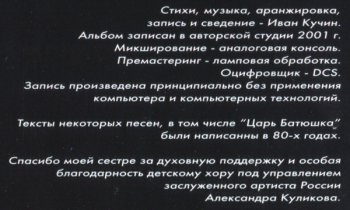
О серьезности творения Ивана Кучина можно судить по композициям из альбома “Царь-Батюшка”: 5. Спящий зверь, 7. Черный ворон, 11. Царь-Батюшка! Откровенность переживаний автора в этих песнях имеет глубокую смысловую нагрузку и доводит до слушателя боль и страдания, досаду и раскаяние. Сожалею, что моё общение с И. Кучиным перед выпуском этого альбома носило чисто символический характер. С большим уважением отношусь к этому человеку! Желаю ему творческих успехов! /Константин Кропотин/
Альбом: Царь-Батюшка
Жанр: Шансон
Год: 2001
Производитель диска: Классик Компани [CC CD 067/01]
Формат: Flac+Cue+Log
Covers: format BMP, full scans
CD & Covers & Technical info: 369 MB
Залито на: depositfiles

О серьезности творения Ивана Кучина можно судить по композициям из альбома “Царь-Батюшка”: 5. Спящий зверь, 7. Черный ворон, 11. Царь-Батюшка! Откровенность переживаний автора в этих песнях имеет глубокую смысловую нагрузку и доводит до слушателя боль и страдания, досаду и раскаяние. Сожалею, что моё общение с И. Кучиным перед выпуском этого альбома носило чисто символический характер. С большим уважением отношусь к этому человеку! Желаю ему творческих успехов! /Константин Кропотин/
 Автор: Forvarder, 19 декабря 2010, Комментариев: 0, Просмотров: 2 149
Автор: Forvarder, 19 декабря 2010, Комментариев: 0, Просмотров: 2 149Ronnie Wood - I Feel Like Playing (2010)
Lossless Galaxy Release
Ronnie Wood - I Feel Like Playing (2010)
Ronnie Wood - I Feel Like Playing (2010)
Исполнитель: Ronnie Wood
Альбом: I Feel Like Playing
Жанр: Blues
Год: 2010
Производитель диска: Eagles Records [EAGCD428]
Формат: Flac+Cue+Log
Covers: format BMP, full scans (booklet)
CD & Covers & Technical info: 470 MB
Залито на: depositfiles
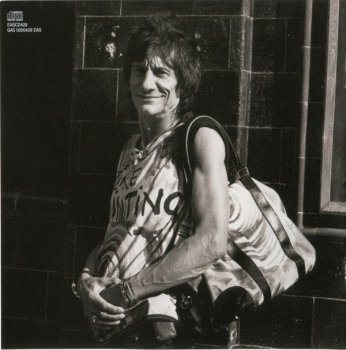
Представлять Ronnie Wood, полагаю, не надо. Это гитарист Великих “Rolling Stones”, к творчеству которых отношусь ровно, но дань уважения к музыкантам, находящихся в форме на протяжении полувека, проявляю искренне!
Альбом: I Feel Like Playing
Жанр: Blues
Год: 2010
Производитель диска: Eagles Records [EAGCD428]
Формат: Flac+Cue+Log
Covers: format BMP, full scans (booklet)
CD & Covers & Technical info: 470 MB
Залито на: depositfiles

Представлять Ronnie Wood, полагаю, не надо. Это гитарист Великих “Rolling Stones”, к творчеству которых отношусь ровно, но дань уважения к музыкантам, находящихся в форме на протяжении полувека, проявляю искренне!
 Автор: Forvarder, 18 декабря 2010, Комментариев: 0, Просмотров: 2 104
Автор: Forvarder, 18 декабря 2010, Комментариев: 0, Просмотров: 2 104The Lou Gramm Band - The Lou Gramm Band (2009)
Lossless Galaxy Release
The Lou Gramm Band - The Lou Gramm Band (2009)
The Lou Gramm Band - The Lou Gramm Band (2009)
Исполнитель: The Lou Gramm Band
Альбом: The Lou Gramm Band
Жанр: Rock
Год: 2009
Производитель диска: Frontiers Records/Irond Ltd/Айронд [IROND CD 09 - DD755]
Формат: Flac+Cue+Log
Covers: format BMP, full scans
CD & Covers & Technical info: 363 MB
Залито на: depositfiles
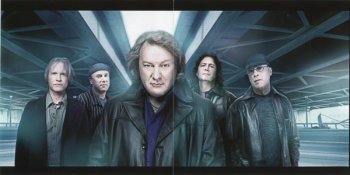
Обладатель высокого примечательного голоса Lou Gramm известен прежде всего как фронтмен "Foreigner", однако на протяжении своей музыкальной карьеры у него были и всякие другие проекты. Покинув "Foreigner" в середине 80-ых, Lou Gramm записывает первый сольник. Альбом "Ready Or Not" получился весьма удачным, причем львиная доля успеха пришлась на песню "Midnight Blue". Второй сольник Лу также пользовался неплохим спросом, виной чему стали композиции "Just Between You & Me" (Топ 10) и "True Blue Love" (Топ 40). В 1991-м музыкант собрал команду "Shadow King", в которую вошли экс-басист "Black Sheep" Брю Тегон, будущий гитарист "Def Leppard" Вивиан Кэмпбелл и барабанщик Кевин Валентайн. Группа заключила контракт с "Atlantic Records" и выпустила одну пластинку, которая, несмотря на лестные отзывы, все же провалилась. Далее Lou Gramm продолжает музыкальную деятельность в возрожденном "Foreigner", но в 1997-м Лу вынужден был прервать работу в группе, поскольку у него обнаружили опухоль мозга. Грэмму пришлось перенести операцию и к нормальной гастрольной деятельности вокалист смог вернуться лишь спустя два года. Лу проработал в "Foreigner" еще несколько лет, а в 2003-м его вновь потянуло на вольные хлеба. Покинув "иностранцев", он организовал семейный бэнд, в который вошли его братья Ричард (бас, гитара) и Бен (ударные). "The Lou Gramm Band" занимались в основном концертами, однако в 2008-м собрались записать альбом, сделанный в жанре "христианского рока". Этот альбом и представлен настоящим релизом.
По материалам http://hardrockcafe.narod.ru
Альбом: The Lou Gramm Band
Жанр: Rock
Год: 2009
Производитель диска: Frontiers Records/Irond Ltd/Айронд [IROND CD 09 - DD755]
Формат: Flac+Cue+Log
Covers: format BMP, full scans
CD & Covers & Technical info: 363 MB
Залито на: depositfiles

Обладатель высокого примечательного голоса Lou Gramm известен прежде всего как фронтмен "Foreigner", однако на протяжении своей музыкальной карьеры у него были и всякие другие проекты. Покинув "Foreigner" в середине 80-ых, Lou Gramm записывает первый сольник. Альбом "Ready Or Not" получился весьма удачным, причем львиная доля успеха пришлась на песню "Midnight Blue". Второй сольник Лу также пользовался неплохим спросом, виной чему стали композиции "Just Between You & Me" (Топ 10) и "True Blue Love" (Топ 40). В 1991-м музыкант собрал команду "Shadow King", в которую вошли экс-басист "Black Sheep" Брю Тегон, будущий гитарист "Def Leppard" Вивиан Кэмпбелл и барабанщик Кевин Валентайн. Группа заключила контракт с "Atlantic Records" и выпустила одну пластинку, которая, несмотря на лестные отзывы, все же провалилась. Далее Lou Gramm продолжает музыкальную деятельность в возрожденном "Foreigner", но в 1997-м Лу вынужден был прервать работу в группе, поскольку у него обнаружили опухоль мозга. Грэмму пришлось перенести операцию и к нормальной гастрольной деятельности вокалист смог вернуться лишь спустя два года. Лу проработал в "Foreigner" еще несколько лет, а в 2003-м его вновь потянуло на вольные хлеба. Покинув "иностранцев", он организовал семейный бэнд, в который вошли его братья Ричард (бас, гитара) и Бен (ударные). "The Lou Gramm Band" занимались в основном концертами, однако в 2008-м собрались записать альбом, сделанный в жанре "христианского рока". Этот альбом и представлен настоящим релизом.
По материалам http://hardrockcafe.narod.ru
 Автор: ley-barmaley, 17 декабря 2010, Комментариев: 3, Просмотров: 3 523
Автор: ley-barmaley, 17 декабря 2010, Комментариев: 3, Просмотров: 3 523АВТОГРАФ: Каменный край (1990, ремастеринг 2005, ICAM 0014 CD)
Lossless Galaxy Release
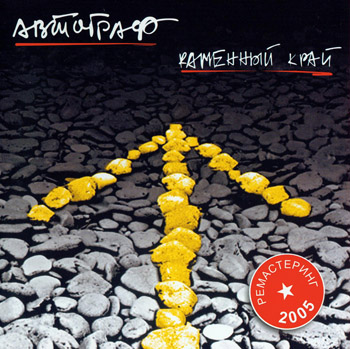
Исполнитель: АВТОГРАФ
Альбом: Каменный край
Информация: ICA MUSIC, ICAM 0014 CD
Жанр: Rock
Год: 1990 / ремастеринг 2005
Формат: WAVPack (image +.cue +.log)
Качество: lossless
Covers: format JPG, full scans
Torrent 364MB
Александр Ситковецкий — гитары
Артур Беркут — вокал
Сергей Мазаев — вокал, саксофон
Леонид Гуткин — бас
Виктор Михалин — барабаны, программирование
Руслан Валонен — клавишные
Альбом: Каменный край
Информация: ICA MUSIC, ICAM 0014 CD
Жанр: Rock
Год: 1990 / ремастеринг 2005
Формат: WAVPack (image +.cue +.log)
Качество: lossless
Covers: format JPG, full scans
Torrent 364MB
Александр Ситковецкий — гитары
Артур Беркут — вокал
Сергей Мазаев — вокал, саксофон
Леонид Гуткин — бас
Виктор Михалин — барабаны, программирование
Руслан Валонен — клавишные
 Автор: ley-barmaley, 17 декабря 2010, Комментариев: 9, Просмотров: 2 400
Автор: ley-barmaley, 17 декабря 2010, Комментариев: 9, Просмотров: 2 400АукцЫон: Лётчик хочет ... или Осколки свободы (2010, ZENITH ZEN 042)
Lossless Galaxy Release
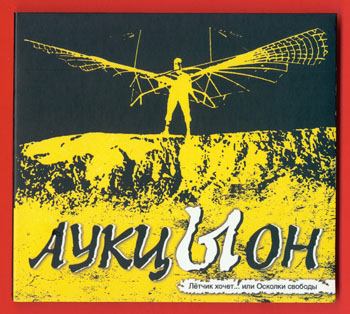
Внимание! У Вас нет прав для просмотра скрытого текста.
 Автор: ALLexxess, 12 декабря 2010, Комментариев: 2, Просмотров: 2 873
Автор: ALLexxess, 12 декабря 2010, Комментариев: 2, Просмотров: 2 873Ozric Tentacles - 3 Double CD Set / 6 Albums
Lossless Galaxy Release
Ozric Tentacles 3 Double CD Set / 6 Albums
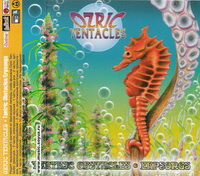
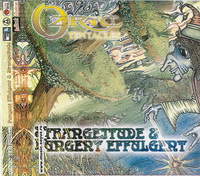
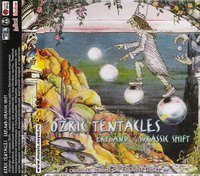

Исполнитель:
Ozric Tentacles
Альбомы:
• • • • • • • • • • • • • • •
2000 Tantric Obstacle / Erpsongs
(2CD Set Snapper Music / Группа Союз 2007)
• • • • • • • • • • • • • • •
2002 Pungent Effulgent / Strangeitude
(2CD Set Snapper Music / Союз Мьюзик 2007)
• • • • • • • • • • • • • • •
2004 Erpland / Jurassic Shift
(2CD Set Snapper Music / Группа Союз 2007)
• • • • • • • • • • • • • • •
Информация:
Jewel Case / Issue with OBI RU
Snapper Music / Recall Records / Soyuz Music RU (Концерн "Группа Союз" • Союз Мьюзик)
Серия / Soyuz Music Series: Indie Вид (линия независимой музыки)
Catalog CDs: SMD CD 308
Catalog CDs: SMD CD 392
Catalog CDs: SMD CD 492
Original Albums
1985 Tantric Obstacle / 1984 Erpsongs
1989 Pungent Effulgent / 1991 Strangeitude
1990 Erpland / 1993 Jurassic Shift
Жанр: Progressive Rock / Space Rock / Psychedelic Rock / Ambient / Electronic
Формат: WAVPack (img + *cue + log, AccurateRip)
Качество: lossless
Covers: format PNG, full scans
Размер:
• • • • • • • • • • • • • • • • • • • • • • • • • • • • • • • •
2000 Tantric Obstacle / Erpsongs 2CD
217MB (3 Part) + 203MB (1 Part)
• • • • • • • • • • • • • • • • • • • • • • • • • • • • • • • •
2002 Pungent Effulgent / Strangeitude 2CD
201MB (4 Part) + 128MB (1 Part)
• • • • • • • • • • • • • • • • • • • • • • • • • • • • • • • •
2004 Erpland / Jurassic Shift 2CD
214MB (4 Part) + 143MB (1 Part)
• • • • • • • • • • • • • • • • • • • • • • • • • • • • • • • •
Залито на: DepositFiles + Hotfile + Fileserve (3% восстановление)
Ozric Tentacles
Альбомы:
• • • • • • • • • • • • • • •
2000 Tantric Obstacle / Erpsongs
(2CD Set Snapper Music / Группа Союз 2007)
• • • • • • • • • • • • • • •
2002 Pungent Effulgent / Strangeitude
(2CD Set Snapper Music / Союз Мьюзик 2007)
• • • • • • • • • • • • • • •
2004 Erpland / Jurassic Shift
(2CD Set Snapper Music / Группа Союз 2007)
• • • • • • • • • • • • • • •
Информация:
Jewel Case / Issue with OBI RU
Snapper Music / Recall Records / Soyuz Music RU (Концерн "Группа Союз" • Союз Мьюзик)
Серия / Soyuz Music Series: Indie Вид (линия независимой музыки)
Catalog CDs: SMD CD 308
Catalog CDs: SMD CD 392
Catalog CDs: SMD CD 492
Original Albums
1985 Tantric Obstacle / 1984 Erpsongs
1989 Pungent Effulgent / 1991 Strangeitude
1990 Erpland / 1993 Jurassic Shift
Жанр: Progressive Rock / Space Rock / Psychedelic Rock / Ambient / Electronic
Формат: WAVPack (img + *cue + log, AccurateRip)
Качество: lossless
Covers: format PNG, full scans
Размер:
• • • • • • • • • • • • • • • • • • • • • • • • • • • • • • • •
2000 Tantric Obstacle / Erpsongs 2CD
217MB (3 Part) + 203MB (1 Part)
• • • • • • • • • • • • • • • • • • • • • • • • • • • • • • • •
2002 Pungent Effulgent / Strangeitude 2CD
201MB (4 Part) + 128MB (1 Part)
• • • • • • • • • • • • • • • • • • • • • • • • • • • • • • • •
2004 Erpland / Jurassic Shift 2CD
214MB (4 Part) + 143MB (1 Part)
• • • • • • • • • • • • • • • • • • • • • • • • • • • • • • • •
Залито на: DepositFiles + Hotfile + Fileserve (3% восстановление)
Рецепт музыкального коктейля от британской легенды спэйс-фьюжна "Ozric Tentacles": джаз-рок - 2 части, электронная музыка - 1 часть, хард-рок - 2 части, арт-рок, желательно кентерберийский - 3 части, экзотические восточные пряности - по 1 части, психоделия - добавить по вкусу и обстоятельствам. На переиздании - два самых ранних кассетных демо коллектива, но уже на них "Озрики" обрели свой классический стиль.
"Что такое Фэнь-Шуй? Это когда целый час гуляешь по лесу, шагая по поганкам, не сломав их. Требует концентрации внимания!" - Джон Иган, флейтист "Ozric Tentacles". "Strangeitude" - тяжелый, мощный и энергичный альбом классиков британского спэйс-фьюжна, "Pungent" - первый виниловый релиз команды, выпущенный еще в 1989-м году и принесший музыкантам признание.
"Erpland" и "Jurassic Shift" - наиболее известные работы британских классиков спэйс-фьюжна, идеальный вариант для знакомства с творчеством группы. Тяжелые психоделические композиции с булькающими, кипящими, переливающимися, летящими звуками синтезаторов, мощной ритм-секций, виртуозной гитарой, и практически амбиентные звуковые пейзажи, открывающие простор для экспериментов с синтезаторами.
"Что такое Фэнь-Шуй? Это когда целый час гуляешь по лесу, шагая по поганкам, не сломав их. Требует концентрации внимания!" - Джон Иган, флейтист "Ozric Tentacles". "Strangeitude" - тяжелый, мощный и энергичный альбом классиков британского спэйс-фьюжна, "Pungent" - первый виниловый релиз команды, выпущенный еще в 1989-м году и принесший музыкантам признание.
"Erpland" и "Jurassic Shift" - наиболее известные работы британских классиков спэйс-фьюжна, идеальный вариант для знакомства с творчеством группы. Тяжелые психоделические композиции с булькающими, кипящими, переливающимися, летящими звуками синтезаторов, мощной ритм-секций, виртуозной гитарой, и практически амбиентные звуковые пейзажи, открывающие простор для экспериментов с синтезаторами.
Илья Прутков, Inrock
A campfire at the Stonehenge free festival in 1983 witnessed the birth of Ozric Tentacles.
It was there that composer and band leader Ed Wynne (guitar & keyboards), and brother Roly Wynne (bass), who were performing in a group known at the time as ‘Bolshem People’, along with drummer Nick 'Tig' Van Gelder (Jamiroquai), stumbled upon keyboardist Joie Hinton. After a session of warming their bones and discussing imaginary breakfast cereals, the group went to perform an impromptu late jam session. Over the course of what became an epic six hour performance, an audience member inquired as to the name of the band. Randomly thinking back to the group’s former conversation, visions of ridiculous mythical mueslis entered Ed’s mind, and consequently he replied; “Ozric Tentacles”. From that very first jam session, a musical compatibility was evoked that has since been a trademark of the Ozric Tentacles. It's a signature blend of hippy aesthetics and raver electronics with spiraling guitars, textured waves of keyboards, midi, samplers, and super-groovy bass and drum rhythms.
It was there that composer and band leader Ed Wynne (guitar & keyboards), and brother Roly Wynne (bass), who were performing in a group known at the time as ‘Bolshem People’, along with drummer Nick 'Tig' Van Gelder (Jamiroquai), stumbled upon keyboardist Joie Hinton. After a session of warming their bones and discussing imaginary breakfast cereals, the group went to perform an impromptu late jam session. Over the course of what became an epic six hour performance, an audience member inquired as to the name of the band. Randomly thinking back to the group’s former conversation, visions of ridiculous mythical mueslis entered Ed’s mind, and consequently he replied; “Ozric Tentacles”. From that very first jam session, a musical compatibility was evoked that has since been a trademark of the Ozric Tentacles. It's a signature blend of hippy aesthetics and raver electronics with spiraling guitars, textured waves of keyboards, midi, samplers, and super-groovy bass and drum rhythms.
Official Website Info

 Автор: ALLexxess, 12 декабря 2010, Комментариев: 5, Просмотров: 2 566
Автор: ALLexxess, 12 декабря 2010, Комментариев: 5, Просмотров: 2 566Bee Gees - Bee Gees 2 Box Double CD 2001/2003
Lossless Galaxy Release
Bee Gees 2 Box Double CD
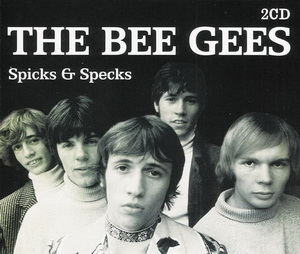
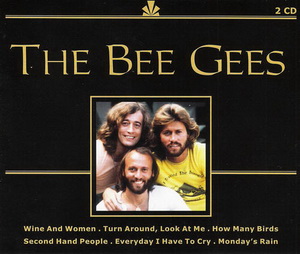

Исполнитель:
Bee Gees
Альбомы:
• • • • • • • • •
2001 Spicks & Specks (2CD Box Set Weton Records)
• • • • • • • • •
2003 The Bee Gees (2CD Box Set 'Black Line' Promo Sound Records)
• • • • • • • • •
Информация:
Weton-Wesgram B. V. Oud Beijerland, the Netherlands
A product from UK / Manufactured in European Union
Series: Black Box
Catalog Box: BB202
Catalog CDs: BB202A / BB202B
• • • • • • • • •
Promo Sound Ltd.
(UK) through S.A.A.R srl (Italy)
Series: Black Line
Catalog Box and CDs: CDBL 1012/2
Жанр: Pop / Rock / Pop Rock / Soft Rock
Год: 2001
Формат: WAVPack (img + *cue + log, AccurateRip)
Качество: lossless
Covers: format PNG, full scans
Размер:
• • • • • • • • • • • • • • • • • • • • • • • • • • • • • • • •
2001 Spicks & Specks 2CD
201MB (1 Part) + 147MB (1 Part)
• • • • • • • • • • • • • • • • • • • • • • • • • • • • • • • •
2003 The Bee Gees 'Black Line' 2CD
201MB (1 Part) + 169MB (1 Part)
• • • • • • • • • • • • • • • • • • • • • • • • • • • • • • • •
Залито на: DepositFiles + Hotfile + Fileserve (3% восстановление)
Spicks & Specks - compilation featuring 26 songs from the early days.
The Bee Gees 'Black Line' - compilation featuring 26 songs.
In a career that lasted more than four decades, the Bee Gees sold over 200 million records worldwide. Barry, Maurice, and Robin Gibb experienced commercial dry spells, and critics frequently dismissed them. But their songs have stuck in the public consciousness - especially the phenomenal disco crossover success of their Saturday Night Fever era and modern romantic standards they?d created earlier, like "To Love Somebody," to "How Can You Mend a Broken Heart" - and the Bee Gees versatility and knack for creating hits have earned them a belated critical respect.
Bee Gees
Альбомы:
• • • • • • • • •
2001 Spicks & Specks (2CD Box Set Weton Records)
• • • • • • • • •
2003 The Bee Gees (2CD Box Set 'Black Line' Promo Sound Records)
• • • • • • • • •
Информация:
Weton-Wesgram B. V. Oud Beijerland, the Netherlands
A product from UK / Manufactured in European Union
Series: Black Box
Catalog Box: BB202
Catalog CDs: BB202A / BB202B
• • • • • • • • •
Promo Sound Ltd.
(UK) through S.A.A.R srl (Italy)
Series: Black Line
Catalog Box and CDs: CDBL 1012/2
Жанр: Pop / Rock / Pop Rock / Soft Rock
Год: 2001
Формат: WAVPack (img + *cue + log, AccurateRip)
Качество: lossless
Covers: format PNG, full scans
Размер:
• • • • • • • • • • • • • • • • • • • • • • • • • • • • • • • •
2001 Spicks & Specks 2CD
201MB (1 Part) + 147MB (1 Part)
• • • • • • • • • • • • • • • • • • • • • • • • • • • • • • • •
2003 The Bee Gees 'Black Line' 2CD
201MB (1 Part) + 169MB (1 Part)
• • • • • • • • • • • • • • • • • • • • • • • • • • • • • • • •
Залито на: DepositFiles + Hotfile + Fileserve (3% восстановление)
Spicks & Specks - compilation featuring 26 songs from the early days.
The Bee Gees 'Black Line' - compilation featuring 26 songs.
In a career that lasted more than four decades, the Bee Gees sold over 200 million records worldwide. Barry, Maurice, and Robin Gibb experienced commercial dry spells, and critics frequently dismissed them. But their songs have stuck in the public consciousness - especially the phenomenal disco crossover success of their Saturday Night Fever era and modern romantic standards they?d created earlier, like "To Love Somebody," to "How Can You Mend a Broken Heart" - and the Bee Gees versatility and knack for creating hits have earned them a belated critical respect.

 Автор: ley-barmaley, 11 декабря 2010, Комментариев: 1, Просмотров: 2 413
Автор: ley-barmaley, 11 декабря 2010, Комментариев: 1, Просмотров: 2 413OZZY OSBOURNE: The Ozzman Cometh (1997) (Made in Austria)
Lossless Galaxy Release
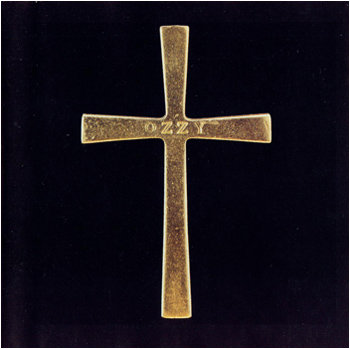
Исполнитель: OZZY OSBOURNE
Альбом: The Ozzman Cometh
Информация: Sony Music Entertainment Inc., #487260 2, Made in Austria
Жанр: Hard Rock
Год: 1997
Формат: WAVPack (image +.cue +.log)
Качество: lossless
Covers: format JPG, full scans
Размер: 498MB
Only torrent
Альбом: The Ozzman Cometh
Информация: Sony Music Entertainment Inc., #487260 2, Made in Austria
Жанр: Hard Rock
Год: 1997
Формат: WAVPack (image +.cue +.log)
Качество: lossless
Covers: format JPG, full scans
Размер: 498MB
Only torrent
 Автор: Forvarder, 9 декабря 2010, Комментариев: 5, Просмотров: 3 335
Автор: Forvarder, 9 декабря 2010, Комментариев: 5, Просмотров: 3 335Camel - The Single Factor (1982) [SHM-CD] Decca [UICY-94141]
Исполнитель: Camel
Альбом: The Single Factor
Жанр: Progressive & Art-Rock
Год: 1982
Производитель диска: Decca [UICY-94141]
Формат: Flac+Cue+Log
Covers: format BMP, full scans
CD & Covers & Technical info: 330 MB
Залито на: depositfiles, narod
Camel — британская рок-группа направления арт-рок, образованная в 1971 году. Главная особенность группы — мелодичность композиций и преобладание инструментов над голосом. Несмотря на то, что группа не достигла коммерческих высот Pink Floyd, Yes или Genesis, она внесла значительный вклад в развитие прогрессивного рока уникальностью своего звучания, ярко выраженной мелодией и композицией песен.
«The Single Factor» был записан и выпущен в апреле 1982 года. В записи участвовало множество известнейших музыкантов. Так к записи были привлечены вокалист Крис Рэйнбоу (англ. Chris Rainbow) и басист Дэвид Пэтон (англ. David Paton), который, помимо участия в Alan Parsons Project, основал в начале 1970-х группу Pilot. Помимо них, в альбоме играли Энтони Филипс (гитарист Genesis первого состава, англ. Anthony Phillips), Фрэнсис Монкмон (Sky, англ. Francis Monkmon), приглашенные барабанщики Симон Филипс (The Who, Джеф Бэк, Toto, англ. Simon Phillips), Грэм Джарвис (играл с Клиффом Ричардом, англ. Graham Jarvis), Дэйв Маттакс (Fairport Convention, англ. Dave Mattacks). Также, что интересно, в записи песни Sasquatch на клавишных играет Питер Барденс, основавший Camel и ушедший из него в 1978 году.
Википедия
Альбом: The Single Factor
Жанр: Progressive & Art-Rock
Год: 1982
Производитель диска: Decca [UICY-94141]
Формат: Flac+Cue+Log
Covers: format BMP, full scans
CD & Covers & Technical info: 330 MB
Залито на: depositfiles, narod
Camel — британская рок-группа направления арт-рок, образованная в 1971 году. Главная особенность группы — мелодичность композиций и преобладание инструментов над голосом. Несмотря на то, что группа не достигла коммерческих высот Pink Floyd, Yes или Genesis, она внесла значительный вклад в развитие прогрессивного рока уникальностью своего звучания, ярко выраженной мелодией и композицией песен.
«The Single Factor» был записан и выпущен в апреле 1982 года. В записи участвовало множество известнейших музыкантов. Так к записи были привлечены вокалист Крис Рэйнбоу (англ. Chris Rainbow) и басист Дэвид Пэтон (англ. David Paton), который, помимо участия в Alan Parsons Project, основал в начале 1970-х группу Pilot. Помимо них, в альбоме играли Энтони Филипс (гитарист Genesis первого состава, англ. Anthony Phillips), Фрэнсис Монкмон (Sky, англ. Francis Monkmon), приглашенные барабанщики Симон Филипс (The Who, Джеф Бэк, Toto, англ. Simon Phillips), Грэм Джарвис (играл с Клиффом Ричардом, англ. Graham Jarvis), Дэйв Маттакс (Fairport Convention, англ. Dave Mattacks). Также, что интересно, в записи песни Sasquatch на клавишных играет Питер Барденс, основавший Camel и ушедший из него в 1978 году.
Википедия
 Автор: ley-barmaley, 9 декабря 2010, Комментариев: 5, Просмотров: 2 619
Автор: ley-barmaley, 9 декабря 2010, Комментариев: 5, Просмотров: 2 619TEQUILAJAZZZ: Журнал Живого (2009, FeeLee Records, FL 3210)
Lossless Galaxy Release
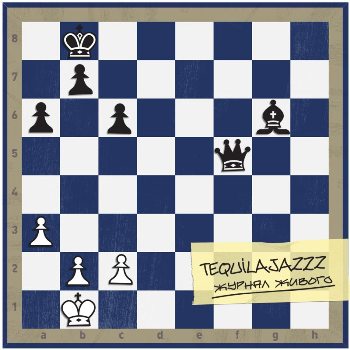
Исполнитель: TEQUILAJAZZZ
Альбом: Журнал Живого
Информация: FeeLee Records, FL 3210
Жанр: Alternative Rock
Год: 2009
Формат: WAVPack (image +.cue +.log)
Качество: lossless
Covers: format JPG, full scans
Размер: 437MB
Only torrent
Альбом: Журнал Живого
Информация: FeeLee Records, FL 3210
Жанр: Alternative Rock
Год: 2009
Формат: WAVPack (image +.cue +.log)
Качество: lossless
Covers: format JPG, full scans
Размер: 437MB
Only torrent
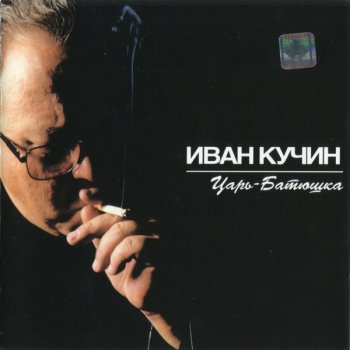
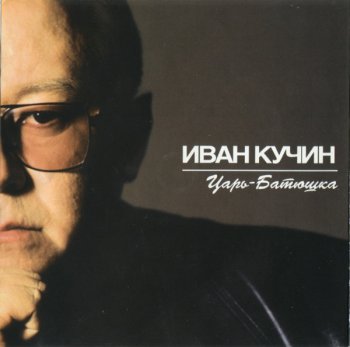
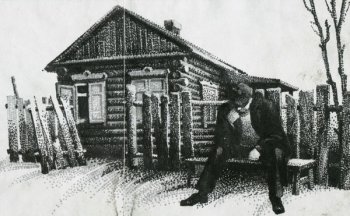
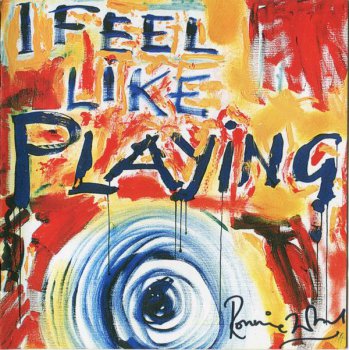
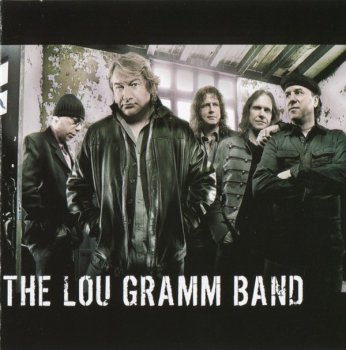
![Camel - The Single Factor (1982) [SHM-CD] Decca [UICY-94141] Camel - The Single Factor (1982) [SHM-CD] Decca [UICY-94141]](/uploads/posts/2010-12/thumbs/1291917268_front.jpg)